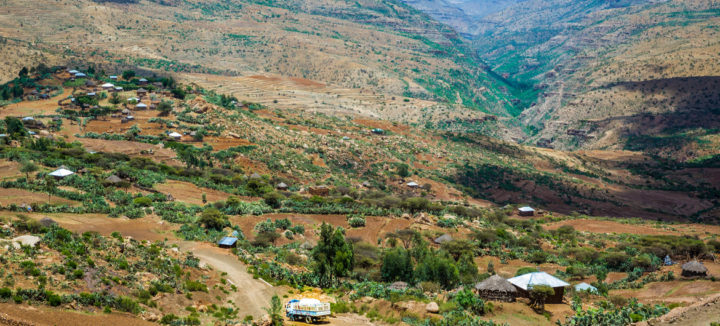With telephone lines still cut and transport links disrupted, it is impossible for humanitarians to get vital supplies into Ethiopia’s Tigray region or assess evolving humanitarian needs, the UN Office for the Coordination of Humanitarian Affairs (OCHA) has said.
“With roads closed, food, health and other emergency supplies have currently no way to make it into Tigray making prepositioning or re-stocking impossible”, the UN emergency relief agency said in an update issued on Thursday.
“Telephone lines remain cut making information flow and corroboration of media reports very difficult for the humanitarian community, as well as to monitor population movement and additional humanitarian needs”, it added.
In addition, banks are reportedly closed, and vehicles banned from the roads in and out of the region. There are already shortages of basic commodities, impacting the most vulnerable first.
We remain concerned about the ongoing tensions in the Tigray region of Ethiopia, and the impact on civilians.@UN & partners call for unimpeded access so that humanitarian aid can be provided to those in need.
More here: https://t.co/MEBngAn4MP pic.twitter.com/aNmvOjYDpN
— UN Humanitarian (@UNOCHA) November 12, 2020
Violence erupted last week in Tigray involving federal and local forces, following the reported takeover of an army base in the Tigrayan capital, Mekelle, after which the Prime Minister ordered a military offensive.
In a statement issued at that time, the Secretary-General called for “immediate measures to de-escalate tensions and ensure a peaceful resolution to the dispute”.
Concern for civilians
OCHA has also voiced concern for the protection of civilians, especially children, women, elderly persons and the disabled, amidst the hostilities.
“Existing child protection risks are likely to be exacerbated by the ongoing hostilities”, it added, noting the high risk of children being separated from their parents or caregivers, which would expose them to abuse and exploitation.
There are also worries over damage to crops by desert locusts, worsening food insecurity, and the spread of COVID-19.
Committed to staying
OCHA also reiterated that the UN and its partner organizations are “committed to staying and delivering humanitarian assistance” and that a response plan for Tigray region is being rapidly developed.
According to OCHA, there are some 600,000 food beneficiaries in the region, about 100,000 internally displaced persons, and some 96,000 refugees.






